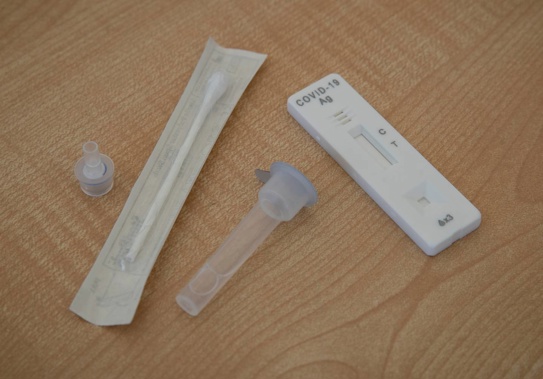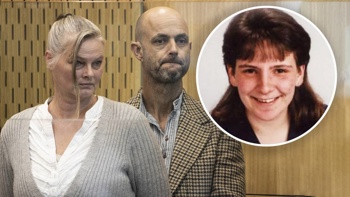
The Government has made a suite of new Covid-19 announcements this morning which include a $200 million boost for those isolating at home and the sale of rapid virus tests to the public.
Businesses are ahead of the queue when it comes to rapid antigen testing, and will get access to it from next week.
Associate Minister of Health Ayesha Verrall announced businesses will be able to directly source approved rapid antigen tests for use within their workforce from December 1.
The tests will be more widely used across our health system, including in aged residential care.
"Rapid antigen tests will also be available to the general public at pharmacies from 15 December, with tests to be administered under the supervision of pharmacy staff. A PCR test will be required to confirm any positive results," Verrall said.
For those isolating at home, Minister for Social Development and Employment Carmel Sepuloni said $204.1m will be made available to support those people.
"Supporting the welfare needs of individuals and whānau is central to how we will manage Covid-19 in the community from now on.
"Each region in New Zealand has different community supports and groups available to them, therefore the Government is providing $204.1m for region-specific, locally-led responses. "
Health Minister Andrew Little says a $300m boost will allow Pharmac to buy new medicines to treat Covid-19, provide extra care with its community approach, support packs being provided within 48 hours and regular health checks throughout people's recovery.
The announcements were made at SouthSeas Healthcare in Ōtara, South Auckland with stakeholders.
Verrall added that under the new traffic light framework, in regions at Red and Orange there will be a focus on symptomatic testing and surveillance testing in high-risk settings.
Regions at Green will see a greater focus on surveillance testing, to quickly find any new clusters of cases.
"We have also stood up a new national telehealth case investigation service, and are training 475 investigators by the end of this month. This will add significant new capacity on top of the excellent work of our Public Health Units. There is a focus on recruiting Māori and Pacific staff, to ensure we can respond to these communities.
"Under the new strategy there will be more ways to test people with faster results, providing greater certainty and reassurance – and less disruption to our everyday lives."
Little said as the country moved to the traffic light system, had reduced restrictions, and the Auckland boundary was removed, more people will be travelling around the country in the months to come and there will be more cases across the country.
"The vast majority of people who get Covid will have mild to moderate symptoms and won't require hospital care, but we need to make sure those recovering at home have the support and medicine they need to recover safely, and that others in the household are safe as well," Little said.
The announcements come after the Government's approach to home isolation of positive cases has received strong criticism as the public health system struggles to bear the weight of Auckland's growing outbreak.
None have been more visceral than the account of a grieving daughter whose father died at home 12 days after contracting Covid-19, but not before his calls for help were allegedly refuted by health officials, who said he had normal symptoms and would get better.
Other problems with the home isolation programme have been predicted among the rural population with one expert attesting some patients would have to climb a hill to get phone coverage and engage with health staff.
In Auckland, there are 1578 people with the virus isolating at home. Including case contacts, public health staff are supporting 4524 in Auckland in total.
In Waikato, there are 139 cases isolating at home.
Yesterday, there were 215 new community Covid cases - 181 of which were in Auckland.
Earlier today, Sepuloni - also disability issues minister - announced further support for people living with disabilities to access vaccination through a new text service.
The service, run by Healthline/Whakarongorau, would reportedly make it easier for the deaf, hard of hearing community and others who may be speech impaired to access vaccine information, book a vaccination appointment or support with transport.
People could text 8988 and would be assisted by an advisor who either live with a disability themselves, have close whānau with a disability or have extensive experience working with the disabled community.
Take your Radio, Podcasts and Music with you









